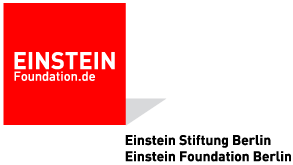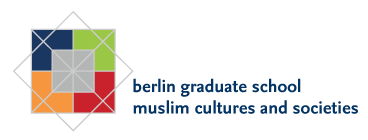Aristotle's Poetics in the West (of India) from Antiquity to the Renaissance – A Multilingual Edition, with Studies of the Cultural Contexts, of the Syriac, Arabic, Hebrew, and Latin Translations
Berlin Graduate School Muslim Cultures and Societies / Seminar für Semitistik und Arabistik
Fachbereich Geschichts- und Kulturwissenschaften


The project is hosted at the Berlin Graduate School Muslim Cultures and Societies (BGSMCS), Freie Universität Berlin; after a successful first phase (March 2016 – Feb 2019), the project was granted the maximum prolongation of further 34 months (March 2019 – Dec 2021) by the Einstein Foundation Berlin.
With the support of the Einstein Visiting Fellowship, the Berlin Graduate School Muslim Cultures and Societies was able to bring a leading international scholar in Graeco-Arabica (i.e., the scientific translations from Greek into Arabic), Dimitri Gutas of Yale University, to Freie Universität Berlin. The Greek original of the Poetics was edited in 2012 with D. Gutas as co-editor of this first editio maior of the text (Leiden, with L. Tarán). The aim of this project is to edit critically and translate into English all translations of Aristotle's Poetics and their commentaries in all languages they existed: Syriac, Arabic, Latin, and Hebrew. This will be accompanied by a comparative study of its intellectual history that bridges the cultures in the Near East, North Africa, and Europe, and traverses the religions of Christianity, Islam, and Judaism.
Gutas was appointed Einstein Visiting Fellow at the BGSMCS in 2016-2019 (project phase I), and 2019-2021 (project phase II). For this project, D. Gutas and B. Gruendler have gathered a group of cooperating Berlin scholars from Freie Universität Berlin, Humboldt-Universität zu Berlin, Berlin-Brandenburg Academy of Sciences and Humanities, and the Max Planck Institute for the History of Science, as well as international scholars. These are organized in core teams for each language, which focus on the respective editions of the Arabic, Syriac, Latin, and Hebrew versions, and study the cultural and intellectual history of the Poetics as the debate, initiated by the Arabic commentaries continued in Syriac and with the European reception in Latin and Hebrew.
For the first time, a key work of world literature and science – and one that shows the cultural continuum of Europe, North Africa, and the Near East – is being philologically documented and historically contextualized throughout its entire history. The salient developments in the long transmission from antiquity to the Renaissance took place in the Islamic world where the earliest commentaries to the Aristotelian text were composed. Thus, at the core of the project stands the focus on the Poetics in Arabic-Islamic culture. The project, hosted at BGSMCS, is to become a model for future work on key texts, their multilingual editions and contextual studies.
Commentary volumes
Vol. 1, The extant Syriac translation of the passage on tragedy, and the Arabic translation of the Poetics from Syriac by Abu Bishr (editors: O. Overwien and M. Martelli [Syriac]; D. Gutas [Arabic]).
Vol. 2, Avicenna's Arabic paraphrase in the Kitāb al-Shiʿr from the Shifā'; Bar Hebraeus's Syriac summary of Avicenna and possibly with reference to the Syriac translation (editors: D. Gutas, A. A. Sakr [Arabic]; H. Takahashi, V. Chamourgiotaki [Syriac]).
Vol. 3, Averroes' Talkhīṣ and Ibn Tumlus's paraphrase related to Averroes (editors: M. Salim Salim, D. Gutas, T. Frey, B. Gruendler, A. al-Quraini [Averroes]; M. Aouad, H. Haddad [Ibn Tumlus]).
Vol. 4, The medieval Latin translation of Averroes by Hermann the German and the medieval Hebrew translation of Averroes by Todrosi (editors: L. Minio-Paluello, D. Gutas, T. Frey [Hermann]; F. Gorgoni, V. Chamourgiotaki [Todrosi]).
Vol. 5, The Renaissance retroversions into Latin by Mantino and De Balmes; together with the Poetica Minora(editors: F. Gorgoni,T. Frey, D. Gutas [retroversions]; A. A. Sakr, V. Chamourgiotaki, D. Gutas [Poetica Minora]).
Vol. 6, Studies on the reception of the Poetics. It will portray the life of the text as a key work for both Europe and Islam in its different linguistic and cultural surroundings and its cumulative reception from Hellenism to the Renaissance. (editors B. Gruendler; D. Gutas et al.).
Vol. 7, Concordance of the glossaries and related studies; Bibliographies; Indices (editors: D. Gutas; B. Gruendler, S. Wilder, T. Frey et al.).
Vol. 8, Proceedings of the conference Why We (Should) Translate Science and Philosophy. A Collection of Contemporary Documents. The source texts are published both in the original language and in English translation; a general introduction; introductory sections by each contributor, (editors: D. Gutas, with the assistance of Ch. Burnett and U. Vagelpohl; contributions by M. Angold; Ch. Burnett, D. Cohen; G. Freudenthal; D. N. Hasse; A. Kaldellis; F. Mundt; I. Sánchez; I. Toral; U. Vagelpohl; M. Zakeri).
Project Team
The project team has been constituted of executive-advisory members and the groups of researchers organized in core teams for the Arabic, Syriac, Latin, and Hebrew versions of Aristotle's Poetics and its commentaries. The Greek original of the Poetics was edited in 2012 with D. Gutas as co-editor of this first editio maior (Leiden, with L. Tarán).
Contact
office@bgsmcs.fu-berlin.de
+49 (0)30-838-53417
aristotle-poetics@geschkult.fu-berlin.de
+49 (0)30-838-57687
Postal address
Aristotle's Poetics, c/o Seminar for Semitic and Arabic Studies, Department of History and Cultural Studies, Freie Universität Berlin, Fabeckstraße 23/25, 14195 Berlin.
